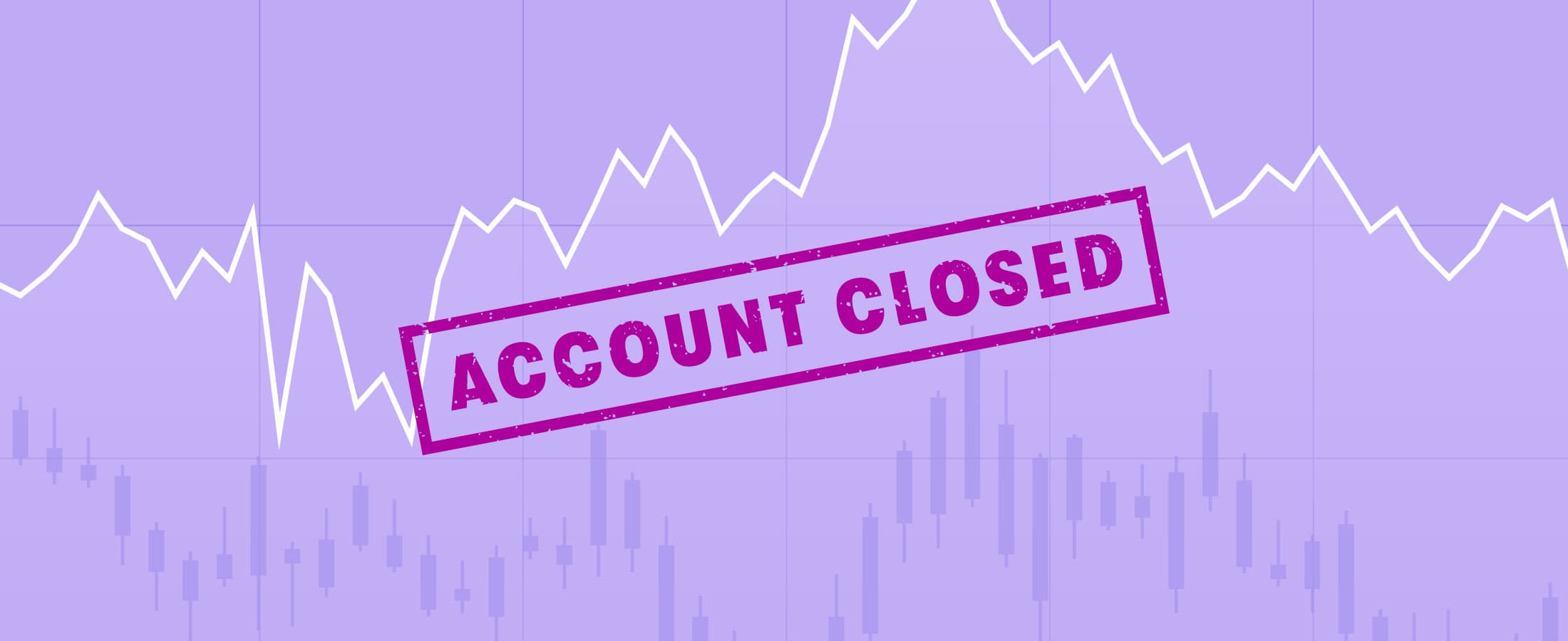Mar 25, 2020
What Can Happen If I Close My Brokerage Account?
If you close your account and your holdings have gains, they’re taxable

People invest in the stock market with the hope of earning some money.
But the money you earn on your investments can also be subject to taxes once you sell your holdings, especially if you sell less than a year after purchasing a security.
And that’s also true if you close your brokerage account. It’s considered a sale and you may owe taxes.
Confused? Don’t be. We’ll break it down for you.
Short-term capital gains vs. Long-term capital gains
Your investments may earn something called capital gains. Any time you invest in the stock market, your investment has the potential to increase in value. For example, a stock you may purchase for $20 at some point could be worth $60 later on. That increase in value, or profit, once realized is called a capital gain. That profit is “realized” when you sell it.
But there isn’t only one kind of capital gain. There are both short-term and long-term capital gains, and each one is taxed differently:
Short-term capital gains are for investments held less than one year.
Long-term capital gains are for those held for one year or more.
Short-term capital gains are essentially taxed at the same rate as your ordinary income for federal income tax purposes, and that rate can be nearly twice as high as the rate for long-term capital gains. The top ordinary income rate, for example, is currently 37%. The top long-term capital gain rate is 20%.
Good to know: There are seven ordinary income tax brackets ranging from 10% to 37%. There are only three long-term capital gain brackets: 0%, 15%, and 20%.
In other words, it can pay to hold your investments for longer periods of time, as you’re likely to pay less in taxes.
Here’s a hypothetical example showing how the different rates might apply to your capital gains. Let’s say that you purchase a stock for $200 and hold on to it for 9 months, during which time the stock price increases to $250. Now assume you decide to sell that stock, three months short of one year. And let’s say your federal income tax rate is 24%, which is the rate applied to incomes between $85,500 and $163,300. Assuming the sale of your stock doesn’t push your income into another, higher tax bracket, you’d also pay federal taxes of 24% on the $50 of income you earned from the stock sale, or $12.
But if you had held onto your $250 stock for longer than a year, assuming your income level and the stock price remain the same, you’d pay long term-capital gains of just 15% on your $50, or $7.50.
Here’s something else to think about. You only pay taxes on gains from a sale. So, if a stock increases to $100 from $20, you won’t pay taxes on that $80 of earnings unless you sell it, or close your account.
What about dividends?
Good to know: Dividend earnings are typically taxed as ordinary income, meaning at the higher personal income tax rate. An exception is something called a qualified dividend, on which you’d pay the lower long-term capital gain rate. Generally speaking, a qualified dividend is for a stock that you’ve held for a period of 60 to 90 days, usually within a specified window of time counted from something called the ex-dividend date.
You can learn more about qualified dividends here.
Taxes and retirement accounts
Retirement accounts such as 401(k)s, 403(b)s, and both traditional and Roth IRAs can provide you with some tax benefits. Gains in retirement accounts are generally not subject to taxes as long as you make no withdrawals from the accounts prior to age 59 1/2. With the exception of Roth accounts, which are funded with post-tax dollars, you pay ordinary income taxes on the amounts you withdraw once you’ve reached retirement age.
If you close your retirement account prior to reaching age 59 ½, the money you earn will also be subject to taxes, plus an additional 10% penalty. (Generally speaking, if you do something called a rollover, which means you transfer your retirement account from one financial institution to another, there are no taxes or penalties.)
You can learn more about 401(k)s and IRAs here.
What about losses?
As its name implies, a loss is when the value of your investment loses money. And like capital gains, you can also have long-term and short-term capital losses.
The IRS may let you use both short-term and long-term losses to offset the taxes you owe on both long-term and short-term capital gains. That sounds confusing, but essentially like capital gains, short-term losses are for securities held less than a year. Long-term losses are for those held longer than a year. In the event of a net loss–or a year where you sold more investments at a loss than investments with gains–a portion of the losses can be used to lower your personal income tax too.
Generally speaking, if you close your brokerage account and your losses are higher than your gains, you aren’t likely to pay taxes.
Closing your account
Think carefully before closing a brokerage account, and always consider your personal circumstances, and whether your holdings have gains or losses. And remember, you’re likely to pay either short-term or long-term capital gain taxes on earnings once you sell your holdings.

Investing made easy.
Start today with any dollar amount.
Related articles

investing
Feb 09, 2026
Trump Accounts: Invest Early

investing
Jan 13, 2026
FAQ: Personal Portfolio

investing
Jan 05, 2026
Why did the price I bought or sold my investments at change? What are Trading Windows?

investing
Dec 11, 2025
How to Invest through the Holidays—Without the Stress

investing
Oct 23, 2025
Why Millions Are Canceling Disney+ and Hulu and What It Means for Investors

investing
Sep 30, 2025
Securities Lending
By using this website you agree to our Terms of Use and Privacy Policy. To begin investing on Stash, you must be approved from an account verification perspective and open a brokerage account.
